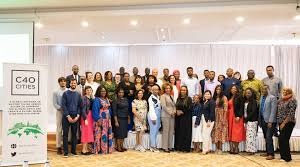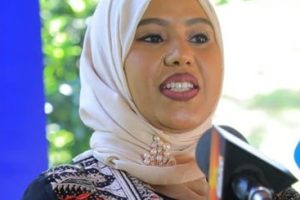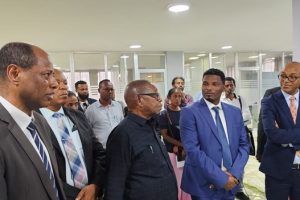A brick we add today goes a long way in allowing the coming generation to access quality education. So, citizens should play their due role towards reinforcing nearby schools to render schools’ quality services enduring, disclosed Ministry of Education.
Leave no person or citizen behind schooling (education) in the country is a viable and mandatory approach of the Ministry of Education towards accessibly of quality education for the whole of Ethiopian youngsters.
Focus should be placed on education starting from KG all the way up to higher learning institutions. Reducing the educational cost incurred due to focus on private schooling in the country, it is possible to channel the exorbitant cost squandered this way to the maintenance and growth of government schools as well as the deployment of qualified teachers to the same said the school program improvement Director Yohannes Wogasso at MoE.
He noted in government/public-run schools the government has opened 300 KG that will be operational this education year. It has planned conduct a surprise visit at KG schools.
He said, “Education has the potential to become one of the most powerful catalysts for development in the years ahead, serving as a bridge from poverty to prosperity, from exclusion to participation, from division to understanding!”
As to him, better education correlates with many positive developments. It helps to arrest child marriages, to ramp down death rates of children under the age of five and delivering mothers and to effectively prevent HIV. It as well facilitates higher wages and greater economic growth. As the challenges we face grow more daunting than ever, more and better education will be instrumental in troubleshooting challenges.
Specifically, all should gain access to publicly funded education. The goal is to transmit not only the basics, but also the skills and values to make our societies more equitable, resilient, and inclusive.
Education can empower young people to build a better future for the community and the country, while inspiring hope and confidence in them towards contributing their share to the development of the country.
But, to have the maximum impact, educational initiatives must leave no one behind the opportunity. No one should be disadvantaged. Neither the poor nor girls, in remote areas of the country and who all too often pay a high price for trying to get an education, must be left out he stressed.
Free and compulsory education, though essential, will be insufficient to ensure that all school-age children can actually attend public schools found with their surroundings that enjoy the support and follow ups of both the government and residents of the respective localities.
Beyond getting children into school, efforts must be made to ensure the quality of the education they receive. Over the last two decades, the surge in enrollment, together with the expansion of learning assessments, has exposed the deterioration of the quality of education on the wake of the mushrooming of private schools here and there, he mentioned.
Meanwhile, the education systems are under pressure. There is an argument that there is a tradeoff between access and quality. The former is increasing while the latter nose diving. Keeping things this way does not hold water.
Inclusion breeds excellence. Teachers and schools need to be given the means to fulfill their mission of arming students with the skills and knowledge they need so as they gain decent jobs and contribute better to society.
And learning does not stop in schools. To compete in a highly interconnected, increasingly knowledge-based, and technologically-driven global economy, people must continue to learn and adapt things throughout their lives. Given this, simply learning the fundamentals in school is not enough; students also need to gain the capacity to analyze, think critically and creatively, and solve problems.
The Ethiopian Herald Sept 29/2019
BY MUSSA MUHAMMED





